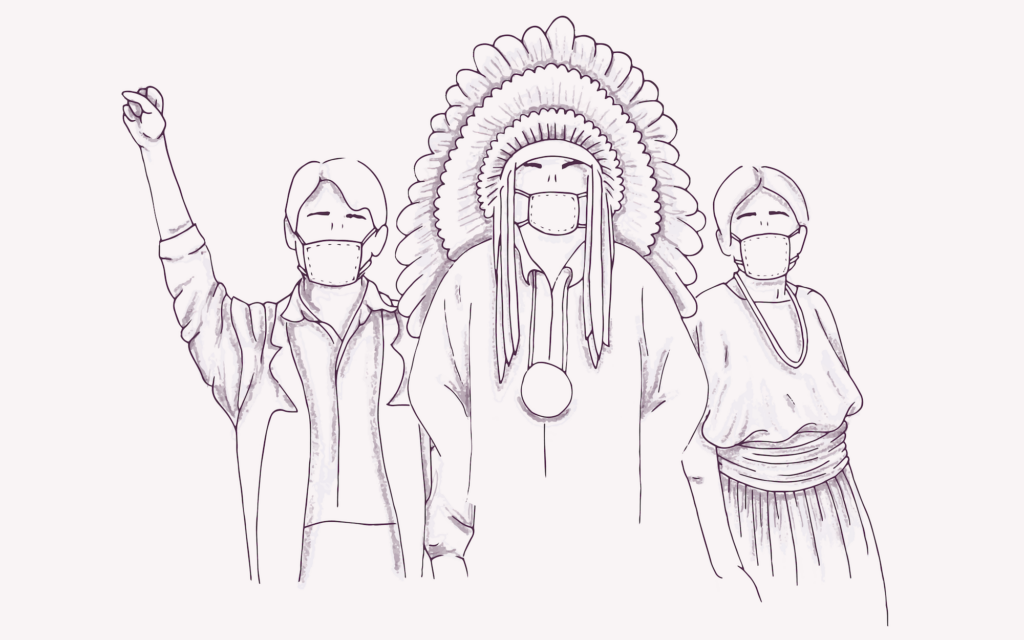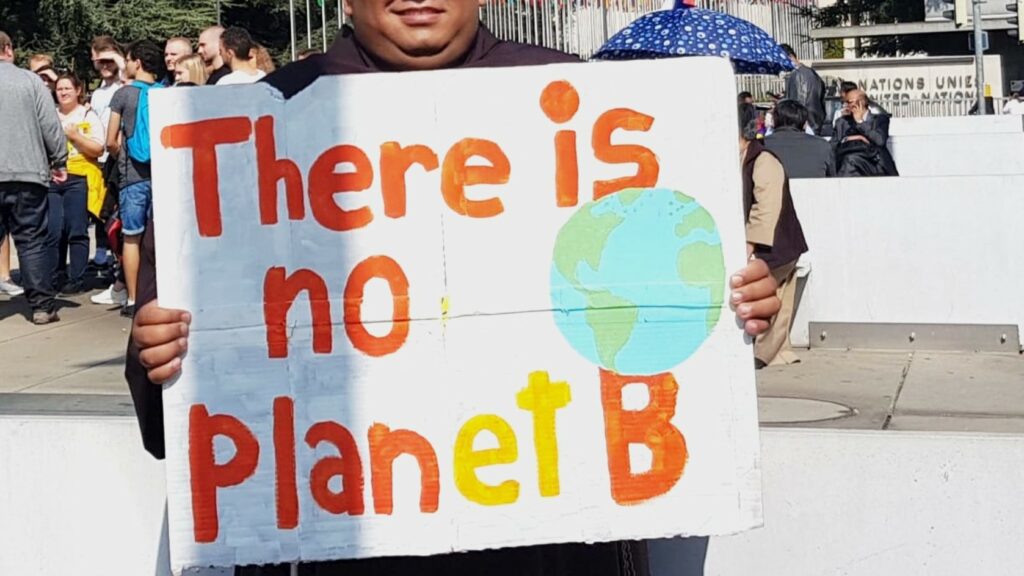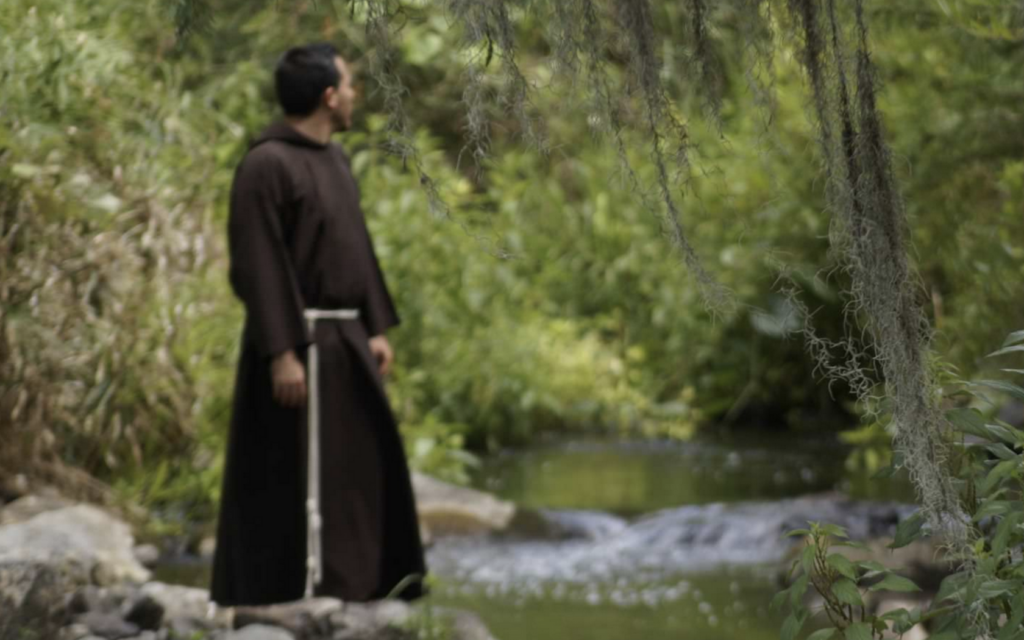The 46th session of the Council was held from 22 February to 24 March 2021 in a mostly virtual format. We continue to work closely with Franciscans and other grassroots partners to ensure that urgent human rights issues are raised, even now that representatives are unable to travel to Geneva themselves.
End of session statement (24 March)
In a joint final statement, 16 civil society organizations highlight key takeaways from the 46th Session. This included a number of key priorities for FI, including the support expressed by a number of States for the creation of a new Special Rapporteur on human rights and climate change and the recognition of the right of all to a clean, healthy and sustainable environment.
• Full statement (English)
Item 10: Technical assistance and capacity building – the Philippines (23 March)
Despite the adoption of Council Resolution 45/33, which provides for technical cooperation and capacity-building in the Philippines, impunity remains the norm for human rights violations and abuses. The government has continued to try to limit space for civil society and educational institutions through intimidation tactics such as ‘red-tagging’ critics as communists and leveling other baseless accusations. On 7 March 2021, nine unarmed activists were murdered after the President made a statement endorsing the killing of alleged communist rebels. In a joint statement, we called on the Council to ensure accountability in the country, including through “independent, impartial and effective investigations into the killings” and by taking concrete and measurable steps to implement previous Council resolutions on the Philippines.
• Full statement (English)
Item 4: General Debate – Indigenous human rights defenders in Guatemala (15 March)
Human rights defenders in Guatemala face systematic repression, discrimination and criminalization. Indigenous defenders, especially those who oppose mega-projects, have been particularly vulnerable. In 2020 alone, 1,034 aggressions were registered, including 17 assassinations and 22 attempted assassinations. At the Council, Fastenopfer and FI drew attention to the case of Bernardo Caal Xol, who has been sentenced to 7 years and 4 months in prison over his opposition to Oxec hydroelectric projects. We were joined by 137 organizations and 147 individuals in our call on the Government of Guatemala to adopt and implement a comprehensive Public Protection Policy to prevent further attacks against defenders and ensure a justice system with independent courts and impartial judges.
• Full statement (Spanish, English)
Item 4: General Debate – Indonesia (15 March)
In a joint statement, FI called attention to the information it continues to receive about new human rights violations in West Papua and expressed concern about escalating violence and shrinking space for civil society. While acknowledging the establishment of a “Special Team” by Indonesian authorities to deal with 13 cases of alleged gross human rights violations, we also noted the lack of a clear timeframe. We called on Indonesia, a member of the Council, to guarantee respect and protection of human rights, and a prompt and effective investigation, prosecution, and remedy the cases of gross human rights violations in West Papua, in conformity with its obligations under international human rights law.
• Full statement (English)
Item 4: General Debate – Guatemala (15 March)
The already precarious situation of human rights defenders in Guatemala is further exacerbated by attacks and defamation of judges, prosecutors and magistrates who seek to fight impunity and corruption. Rather than developing effective prevention and protection policies, the government intends to reduce the budget for the administration of justice. Meanwhile, several legislative initiatives threaten to further shrink civic space. In a joint statement, we called on the Council to closely monitor the human rights situation and to promote the extension of the mandate of the Office of the United Nations High Commissioner in Guatemala.
• Full statement (Spanish)
Item 4: General Debate – Climate Change (15 March)
In a joint statement, FI expressed its deep concern over the suffering of both people and Mother Earth as a result of the intertwined climate and global health emergencies. We commended the Member States of the Climate Vulnerable Forum and Pacific Island States who reiterated the call for a new Special Rapporteur on climate change during the 44th session of the Human Rights Council. Noting that there is an increased urgency to address the climate crisis in a more permanent, systematic and sustained manner we called on the Council to consider the establishment of this new mandate without delay.
• Full statement (English)
Item 3: General Debate – Climate change (10 March)
In 2020, FI and CIEL conducted six regional consultations with over 150 civil society, indigenous people and local community organizations to discuss the establishment of a Special Rapporteur on human rights and climate change. There was an overwhelming support for this new mandate. At the Human Rights Council, we again highlighted that a new mandate would be essential to supporting a stronger human rights-based approach to climate change, engaging in country visits, normative work and capacity building, as well as further addressing the human rights impacts of climate responses, in order to support the most vulnerable.
• Full statement (English)
Item 3: General Debate – Right to a healthy environment (9 March)
Three global environmental crises – the pollution crisis, the biodiversity crisis and the global warming crisis – already violate and jeopardize the human rights of billions of people. In a joint statement, we conveyed a call of action endorsed by 1,100 organizations in September 2020, urging the Council to recognize the right to a safe, clean, healthy and sustainable environment as a matter of the utmost urgency.
• Full statement (English)
International Women’s Day (8 March)
In a joint statement, FI calls on all governments to take immediate action on economic injustice and environmental destruction – two of the most urgent threats facing women and girls in 2021.
• Full statement (English)
Item 3: Interactive Dialogue with the Special Rapporteur on human rights and the environment (4 March)
In the Americas, a lack of legislation that protects and recognizes the human right to water with international standards has led to poor regulation, privatization, deprivation, and grabbing of this resource. This water crisis is even more evident in regions that are water dependent, like the so-called “dry corridor” of Central America that stretches across national borders. In his latest report to the Human Rights Council, the Special Rapporteur made recommendations regarding cooperation and equitable water management. Following these, FI urged the governments of El Salvador, Honduras and Guatemala to take concrete actions to negotiate and sign a treaty to effectively manage transboundary waters.
• Full statement (Spanish and English)
Item 2: Country Reports and Oral Update on COVID-19 – Brazil (1 March)
COVID-19 has had an immeasurable impact on indigenous peoples, especially in the Amazon regions. A new strain in Manaus continues to spread, in part due to a lack of prevention, monitoring, and adequate sanitary measures. The overall proportion of hospital deaths in Brazil is higher among afrodescents and indigenous peoples. There have been instances of victims suffocating due to a lack of oxygen supplies. In a joint statement, FI urges the Government of Brazil to guarantee vaccines with priority to indigenous and other native peoples, as well as emergency financial aid for all poor families, until the end of the pandemic.
• Full statement (Spanish, English and Portuguese)
Annual full-day meeting on the rights of the child (1 March)
In the aftermath of the COVID-19 pandemic, world leaders have an opportunity to put in place bold and transformative solutions toward a more resilient, greener and sustainable recovery rooted in inter-generational justice and accountability to present and future generations. In a joint statement, FI called on UN Member States to build back better, including by recognizing a safe, clean and healthy environment as a human right.
• Full statement (English)
Item 1: High-Level Mainstreaming Panel (22 February)
On the 20th anniversary of the Durban Declaration and Plan of Action, FI again emphasized that COVID-19 has been a magnifying glass as well as a booster for structural, existing inequalities and injustices – disproportionally impacting indigenous peoples and migrants in particular. Nevertheless, they can also be key actors in the solutions to the many crises we are facing. FI urged states to follow the call of action for human rights by the UN Secretary General and to to ensure effective measures and funding for the realization of the whole range of human right
• Full statement (English)










